"HttpEntity in Spring Framework"
 Sudarshan Doiphode
Sudarshan Doiphode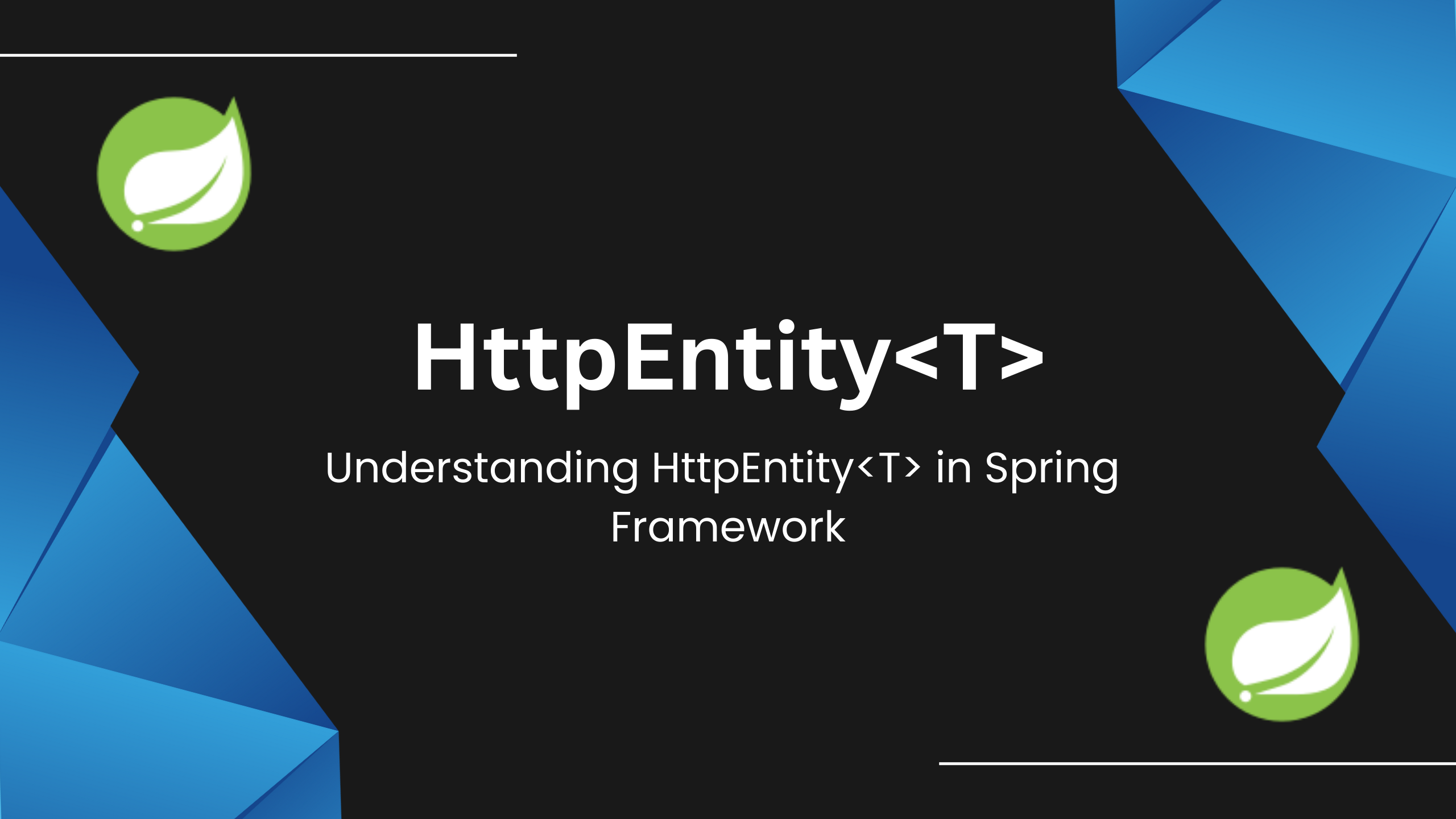
1. Introduction:
HttpEntity<T> is a part of Spring Framework org.springframework.http package. It's a generic class that allows you to specify any type of body content which means you can specify any type of return type for HttpEntity.
HttpEntity<T> represents an HTTP request or response entity, consisting of headers and body.
2. Where to Use HttpEntity<T>:
It is used as a return type with
RestTemplate.In
RestTemplate, this class is returned bygetForEntity()andexchange():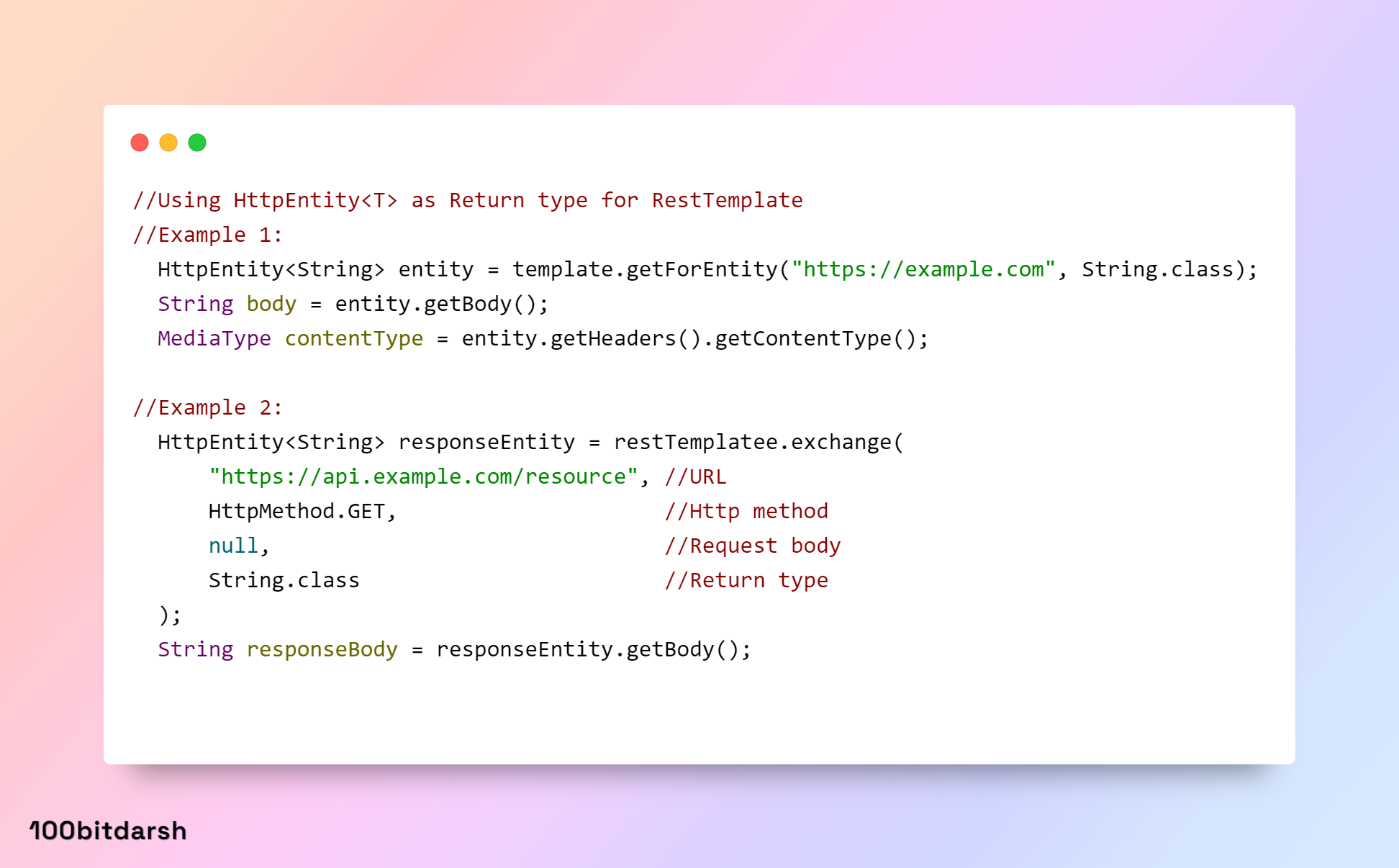
In Spring MVC controllers, you can use
HttpEntityas a method parameter or return type to handle HTTP requests and responses.This is useful when you need access to the entire HTTP entity, including headers and the body.
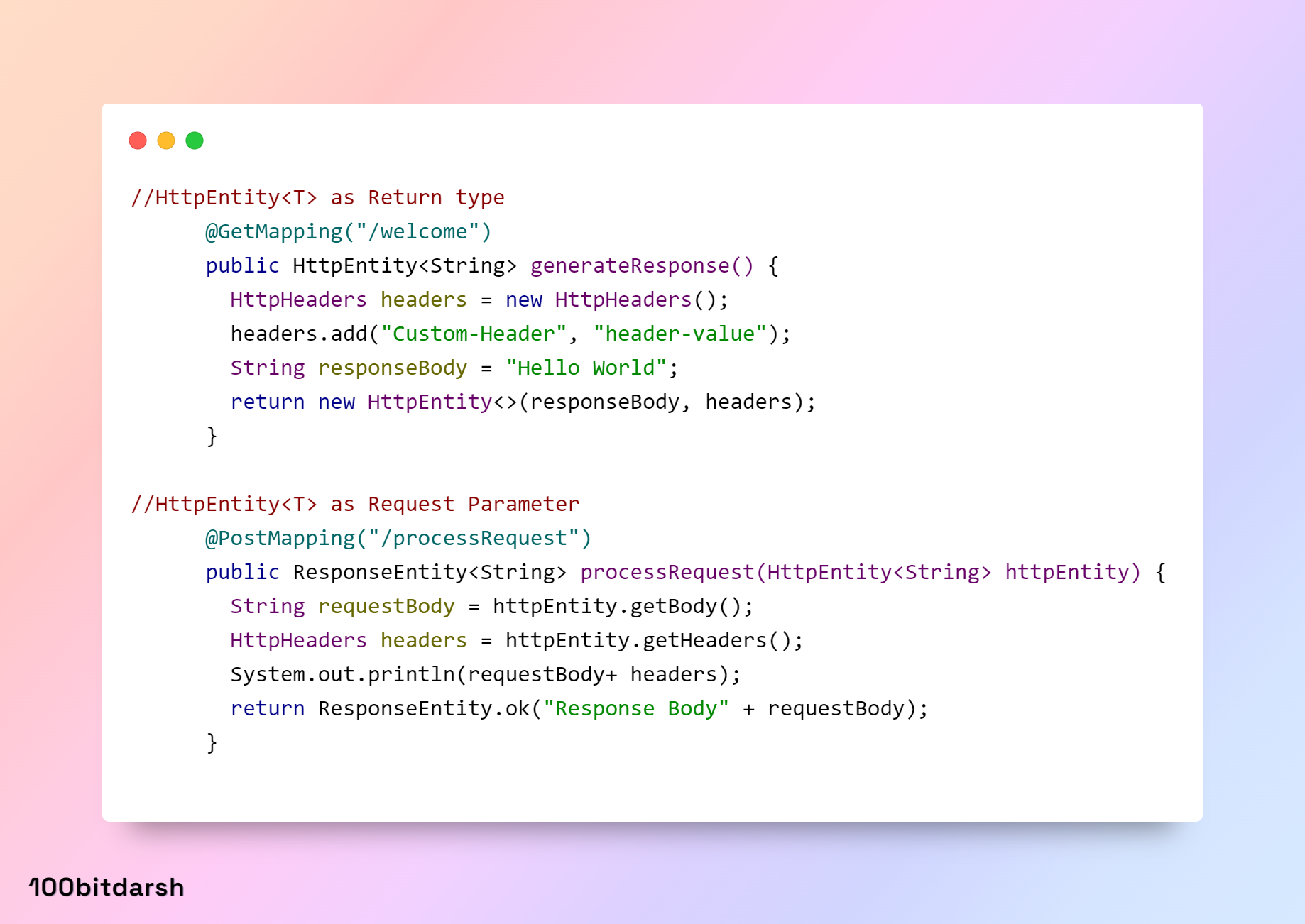
3. Key Features of ResponseEntity<T>:
Header Customization:
HttpEntity<T>allows you to customize HTTP headers easily. You can set headers such as content type, authorization, or any other custom headers that your application requires.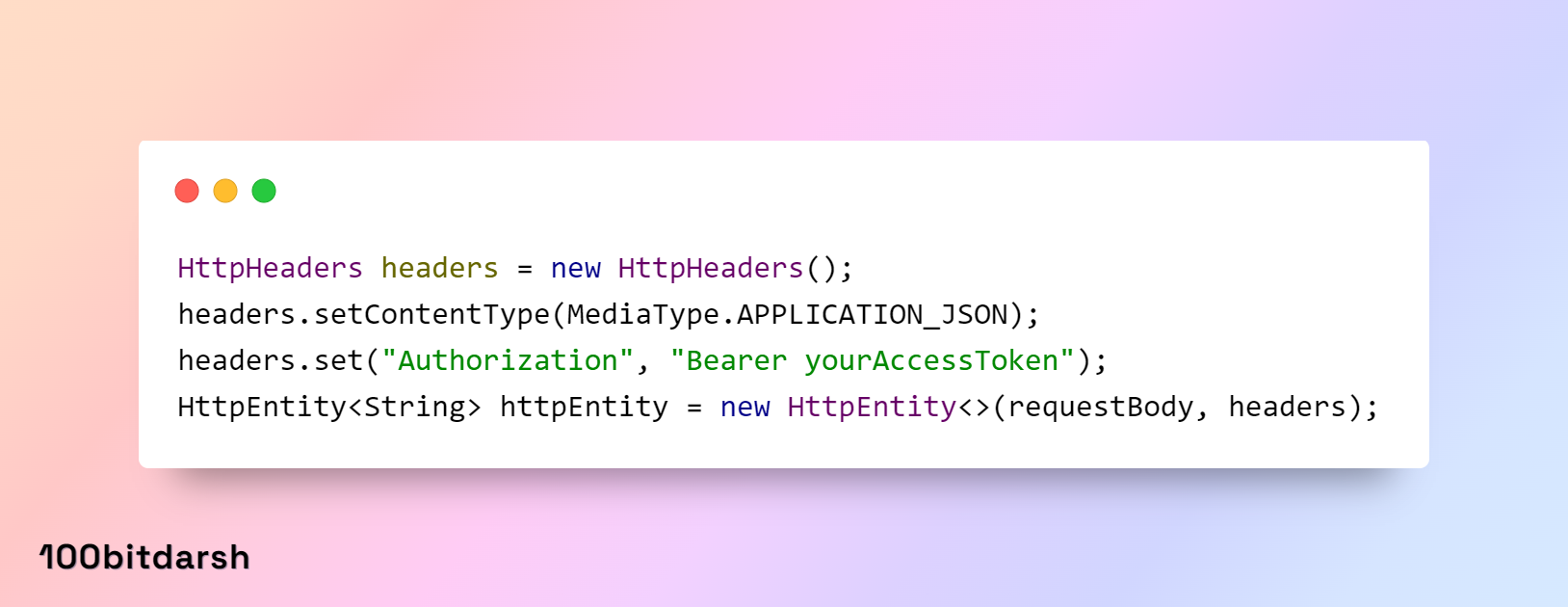
Access to Request/Response Body and Header:
With
HttpEntity<T>, you can access the body content and HTTP Headers of an HTTP request or response.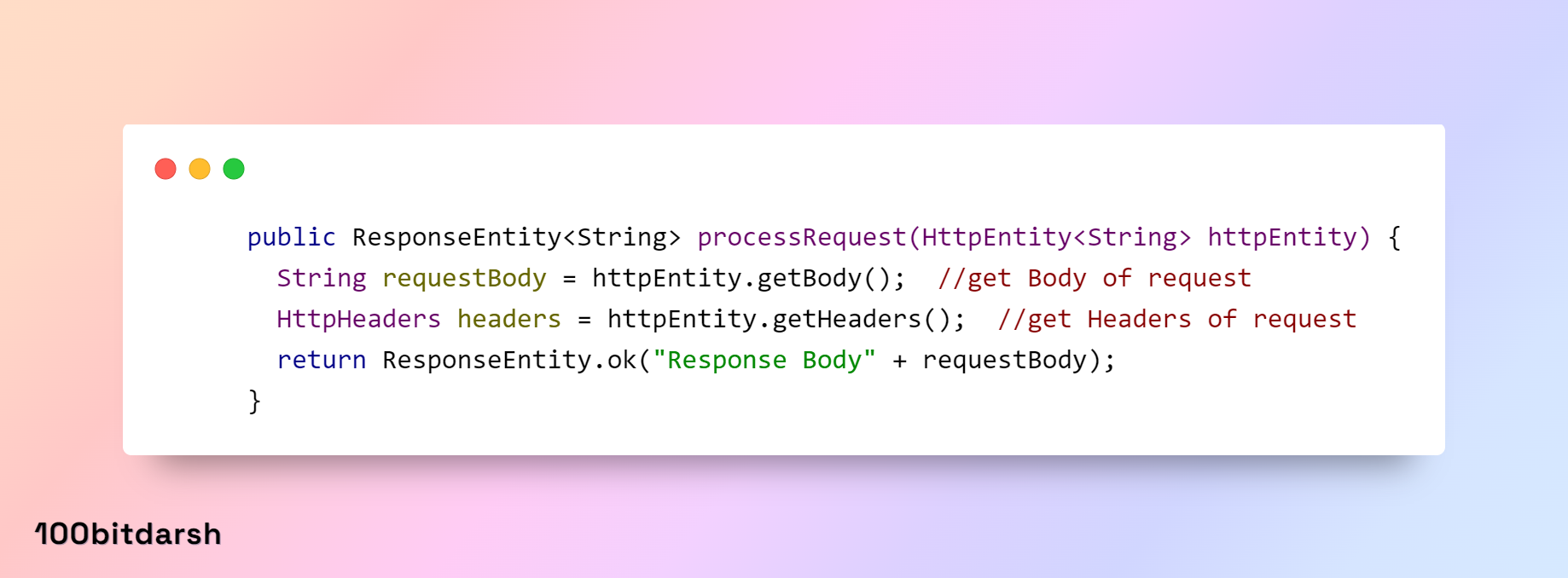
4. Important Constructor of HttpEntity<T>:
The HttpEntity class in the Spring Framework has several constructors that allow you to create an object of HttpEntity with different configurations. Here are examples of HttpEntity with different constructors:
HttpEntity(body, headers)HttpEntity(MultiValueMap<String, String> headers)HttpEntity(body): With Body OnlyHttpEntity(): Default Constructor
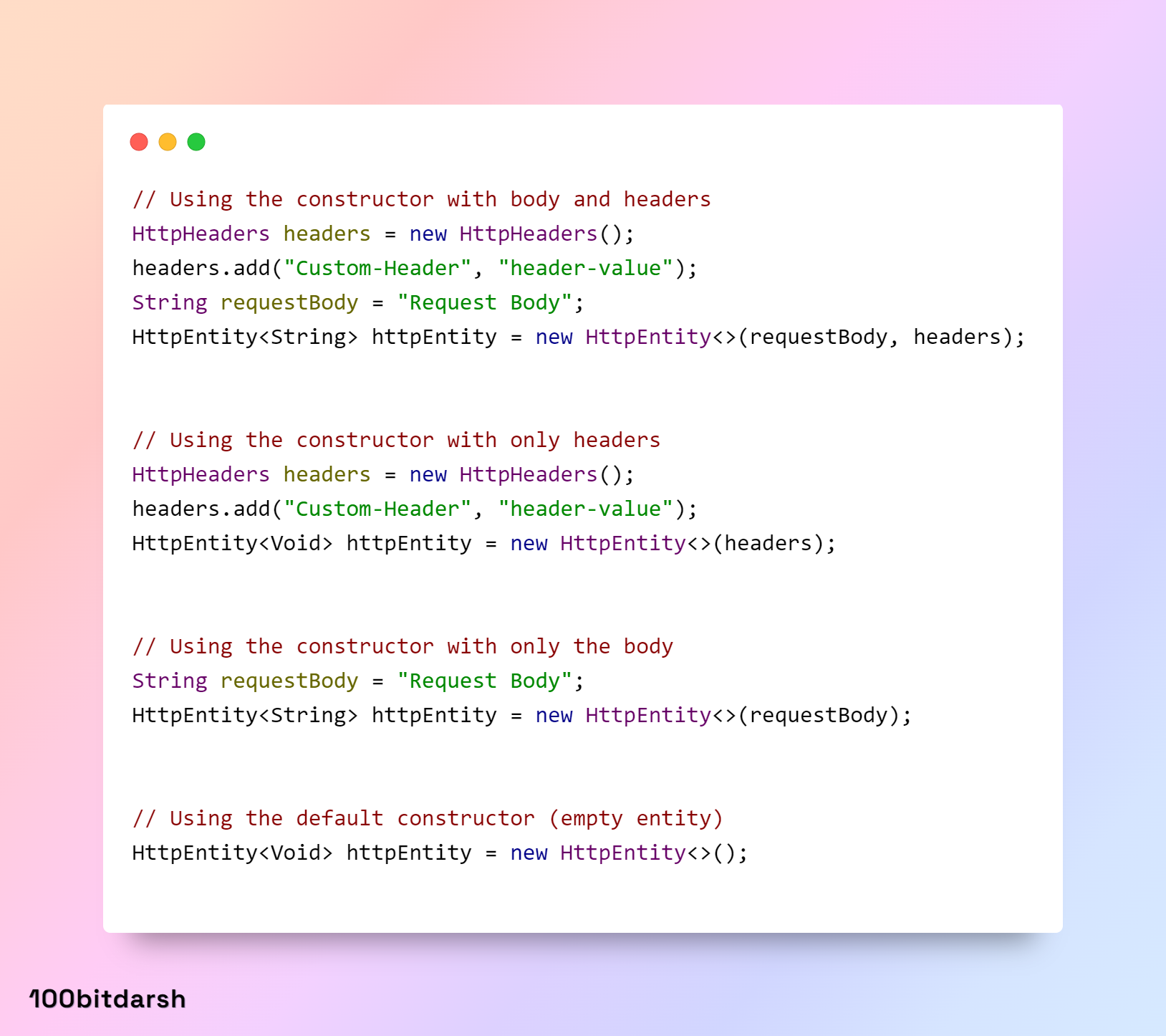
5. Conclusion:
HttpEntity in Spring is like a container that holds both the headers and the body of an HTTP request or response. It gives developers control over what information goes as a request and comes out as a response when their applications communicate over the web. With HttpEntity, you can easily customize things like headers and message content, making it a handy tool for building and interacting with web services in Spring applications.
6. What to Learn Next:
Learn aboutRequestEntityand ResponseEntity becauseHttpEntityis the base class, and provides basic functionality to work with requests and responses.
Subscribe to my newsletter
Read articles from Sudarshan Doiphode directly inside your inbox. Subscribe to the newsletter, and don't miss out.
Written by

Sudarshan Doiphode
Sudarshan Doiphode
👋 Hey there! I'm Sudarshan, a tech enthusiast with a focus on: • 🚀 Spring Boot • 🌼 Spring • 🔒 Spring Security • 🌱 Hibernate • ☕ Java 8 & Java • 🚀 Apache Kafka • 🛢️ Apache Maven • 🐳 Docker • 🔗 Git • 🏗️ Design Patterns • And more tech adventures! Follow for insights and join the journey. 🌟👨💻 #TechEnthusiast